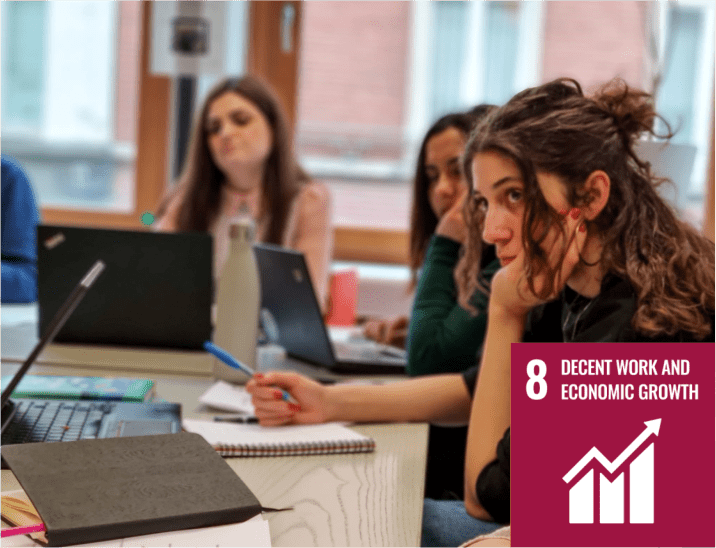SDG Goal 8 – Decent Work and Economic Growth

Decent work, employment creation, social protection, rights at work and social dialogue represent integral elements of the new 2030 Agenda for Sustainable Development. Furthermore, crucial aspects of decent work are broadly rooted in the targets of many of the other 16 goals.
The International Labour Organization (ILO) defines decent work as “productive work for women and men in conditions of freedom, equity, security and human dignity”. It is a multidimensional concept introduced by the ILO in 1999 with four key components: employment conditions, social security, rights at the workplace, and social dialog. It sums up the aspirations of people in their working lives.
There are, however, communities like the CDWD whose conditions of work and lives remain untouched by any international law or convention. The work lives of these sections are relegated to modern forms of slavery.
For instance, based on the concepts of purity and pollution, Dalits are compelled to undertake work that are considered ‘unclean’, like manual scavenging under the garb of ‘traditional occupation’.
But discrimination and slave-like work conditions or the unequal social order in the twenty-first century is something most governments would rather push under the carpet. For instance, India’s NITI Aayog, the planning body spearheading the SDG agenda in the country, does not speak of the working conditions of Dalit communities in its various reports to the international fora.
Similarly, Haratines or Black Moors of Mauritania are systematically deprived of their respect, dignity, and rights and suffer discrimination, marginalisation and exclusion due to their historic membership of the ‘slave caste’.

